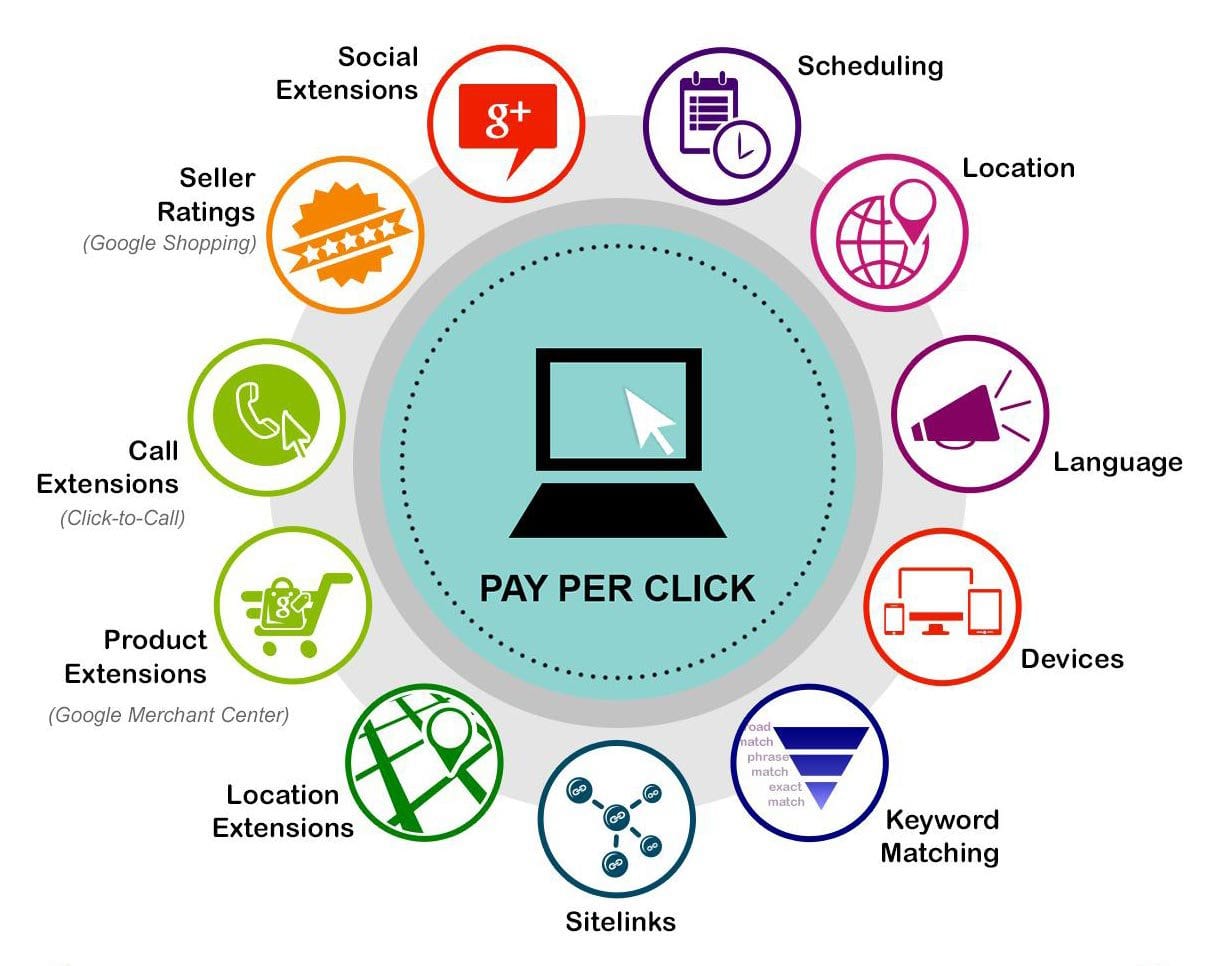


Pay-per-click (PPC), also known as cost per click (CPC), is an internet advertising model used to drive traffic to websites, in which an advertiser pays a publisher (typically a search engine, website owner, or a network of websites) when the ad is clicked.
Pay-per-click is commonly associated with first-tier search engines (such as Google Ads and Bing Ads). With search engines, advertisers typically bid on keyword phrases relevant to their target market. In contrast, content sites commonly charge a fixed price per click rather than use a bidding system. PPC "display" advertisements, also known as "banner" ads, are shown on web sites with related content that have agreed to show ads and are typically not pay-per-click advertising. Social networks such as Facebook and Twitter have also adopted pay-per-click as one of their advertising models.
However, websites can offer PPC ads. Websites that utilize PPC ads will display an advertisement when a keyword query matches an advertiser's keyword list that has been added in different ad groups, or when a content site displays relevant content. Such advertisements are called sponsored links or sponsored ads, and appear adjacent to, above, or beneath organic results on search engine results pages, or anywhere a web developer chooses on a content site.
The PPC advertising model is open to abuse through click fraud, although Google and others have implemented automated systems to guard against abusive clicks by competitors or corrupt web developers.
We help businesses like you to get more clients and sa advertising strategies and campaigns to find new cust We run your ads to generate more leads and revenue. You can sell more products online. You can bring more traffic to your website. Google Ads allows you to take advantage of the benefits of online advertising: show your ads to the right now.